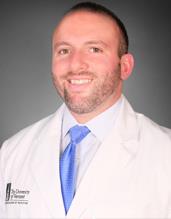Telemedicine Snapshot
 Divisions across the Department of Medicine have ramped up efforts to offer telemedicine visits to promote patient safety and ensure continued access to care through the COVID-19 pandemic.
Divisions across the Department of Medicine have ramped up efforts to offer telemedicine visits to promote patient safety and ensure continued access to care through the COVID-19 pandemic.
For the Division of Gastroenterology and Hepatology, their timeline to launch a telemedicine program accelerated when Vermont Governor Phil Scott instituted the “stay home, stay safe” order to encourage social distancing and slow the spread of COVID-19.
“We were fortunate because we had been working for about six months to get telemedicine up and running in our division,” says Joe Frasca, M.D., assistant professor in the Division of Gastroenterology and Hepatology. “We just basically fast-tracked what we were already doing.”
Their target date of June 1 moved to “as soon as possible,” with key support from the UVM Health Network telemedicine team, says Frasca. The Zoom teleconference platform – used across the UVM Health Network – connects physicians and patients through a safe, secure channel. Office staff schedule appointments with patients and make sure they have the appropriate technology and resources. At the start of the visit, a medical assistant enters the “room” first and then flags the physician in EPIC to signal that the patient is ready. The physician conducts the visit – from their office or home. Frasca, who treats many patients with chronic conditions like Crohn’s disease and ulcerative colitis, says telemedicine offers a viable alternative to the standard office visit.
“For people with stable chronic disease, which applies to a lot of different specialties and divisions and practices, I think it's highly suitable,” he says. ”It’s important to check in on them and make sure you're doing the right things from a disease monitoring and management standpoint, which doesn’t require a physical exam.”
UVM Health Network has made telehealth a priority, with a task force formed to increase availability. Primary care telemedicine visits are now available at all network hospitals. Other divisions in the Department of Medicine – including dermatology and infectious disease – continue to refine their telehealth offerings.
For Gastroenterology and Hepatology, they’re now beginning to incorporate fellows into telemedicine consults, allowing them to continue their clinical training. Much like an in-person visit, but from a remote location, the fellow speaks with the patient first, then consults with the physician before he or she enters the patient’s room. Frasca says preventive care does stand to improve as a result of the transition to telehealth.
“We’ve noticed, just anecdotally, that people are showing up for their appointments almost 100 percent of the time,” he says. “If there's one silver lining, I think making telehealth more efficient and rapidly implemented has been it.”
For more information on implementing a telemedicine program, visit Telemedicine for Medical Professionals from the UVM Health Network or call 847-8266.